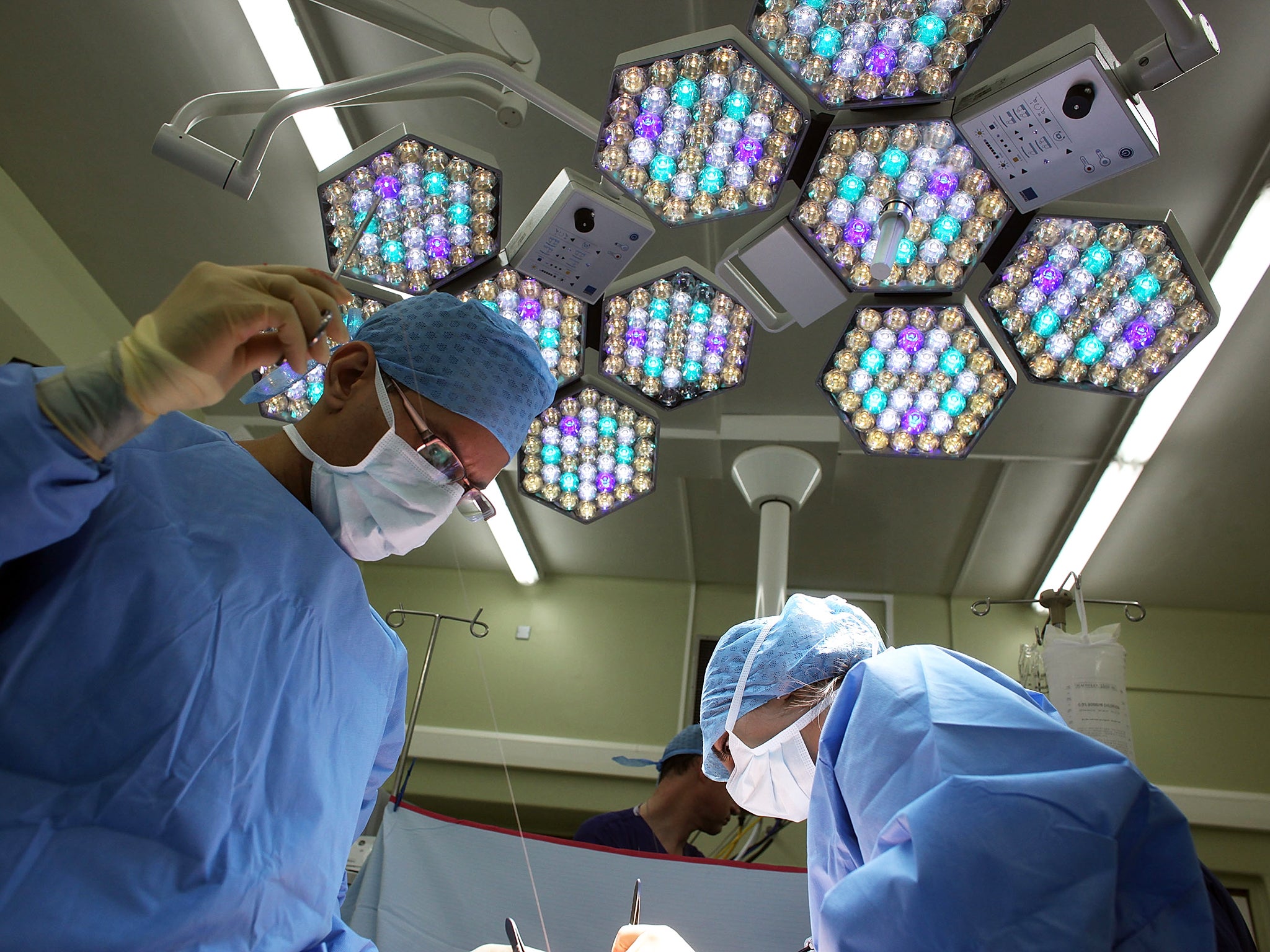NHS waiting lists hit all-time high of six million patients in England
More than 7,000 patients waited over 12 hours in A&E in October, which is an all time high, NHS data has revealed

Your support helps us to tell the story
From reproductive rights to climate change to Big Tech, The Independent is on the ground when the story is developing. Whether it's investigating the financials of Elon Musk's pro-Trump PAC or producing our latest documentary, 'The A Word', which shines a light on the American women fighting for reproductive rights, we know how important it is to parse out the facts from the messaging.
At such a critical moment in US history, we need reporters on the ground. Your donation allows us to keep sending journalists to speak to both sides of the story.
The Independent is trusted by Americans across the entire political spectrum. And unlike many other quality news outlets, we choose not to lock Americans out of our reporting and analysis with paywalls. We believe quality journalism should be available to everyone, paid for by those who can afford it.
Your support makes all the difference.The number of people waiting for an operation in the NHS has hit an all-time high as 6 million people waited for treatment in October, up from 5.8 million the previous month while the number of patients waiting more than a year rose from 300,566 in September to 312,665 in October.
The number of patients waiting more than two years for an operation rose substantially from 12,491 in September to more than 16,225 in October.
The NHS has also recorded the highest number of people waiting more than 12 hours in A&E since data collections began, with 10,646 people delayed in November this year, up from 2,148 in November 2020.
First time data from the NHS shows on average there were 10,500 patients in a hospital bed each day last week who did not need to be there, equating to more than one in 10 NHS beds.
Figures show a record number of 999 calls were made, while delays in ambulance response times continue to be high. Ambulances in England took an average of 46 minutes and 37 seconds last month to respond to emergency calls such as burns, epilepsy and strokes.
This is down from 53 minutes and 54 seconds in October, which had been the longest average response time since records began in August 2017.
Weekly data on ambulances waiting outside A&E departments showed last week more than 8,200 patients waiting more than an hour in an ambulance.
The news comes following repeated warnings from NHS bodies and royal colleges over the pressures facing healthcare services. The Royal College of Emergency Medicine published a report last month revealing long delays in A&E may have led to the deaths of thousands of patients.
Chris Hopson, chief executive of NHS Providers, which represents all hospital staff, said: “The single biggest message we are hearing from NHS staff is that they want the government to acknowledge the scale of workforce problems and to show how this level of pressure on them will not become the new normal.
“Staff have been working flat out since before Covid-19 and we are asking them, once more, to ‘make an extraordinary effort this winter’. Staff will, of course, provide that extra effort. But they need to see a clear plan for how they get to a reasonable workload on a sustainable basis.
The organisation has called on the government to “publicly recognise” the scale of the workforce problems facing the NHS.
NHS national medical director Professor Stephen Powis said: “These figures show that NHS staff are continuing to address the Covid backlog in the face of sustained pressure on urgent and emergency care.
“As we head into a very challenging winter, we are working with partners in social care to get as many patients who are fit to do so home for Christmas, which is right for them and their families as well as freeing up beds. There is much we do not know about omicron but experts advise that vaccines will still help in our fight against the virus.”



Join our commenting forum
Join thought-provoking conversations, follow other Independent readers and see their replies
Comments